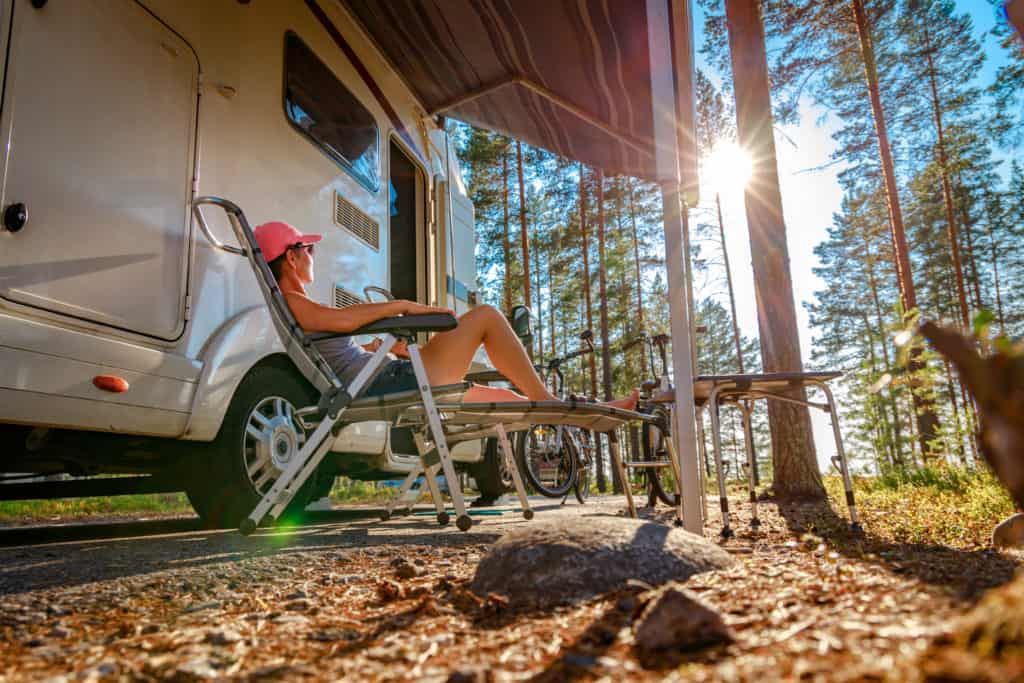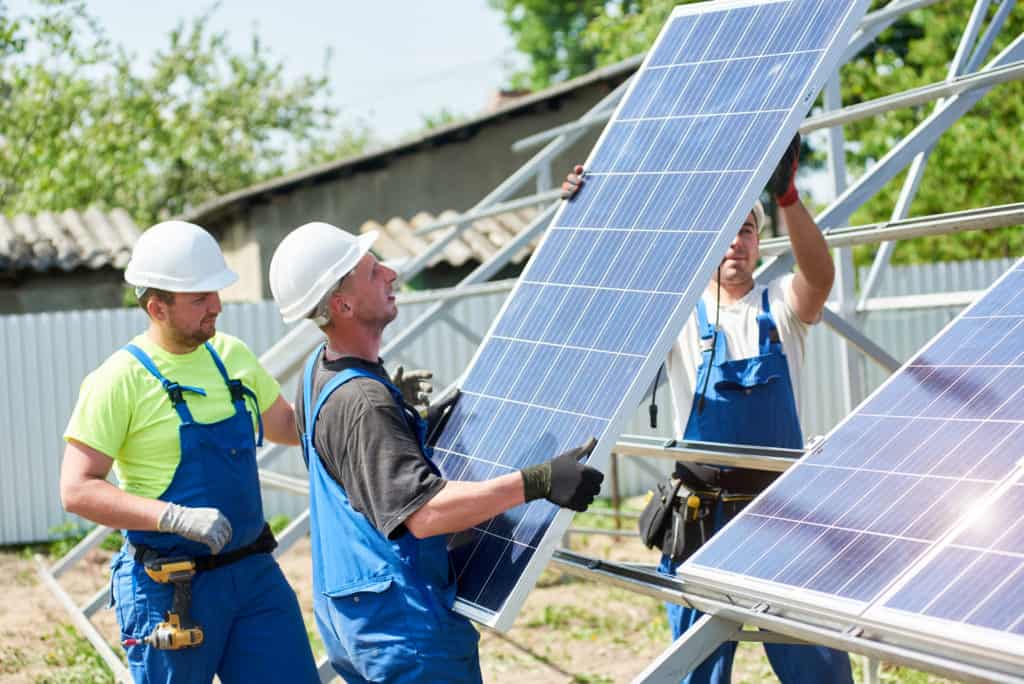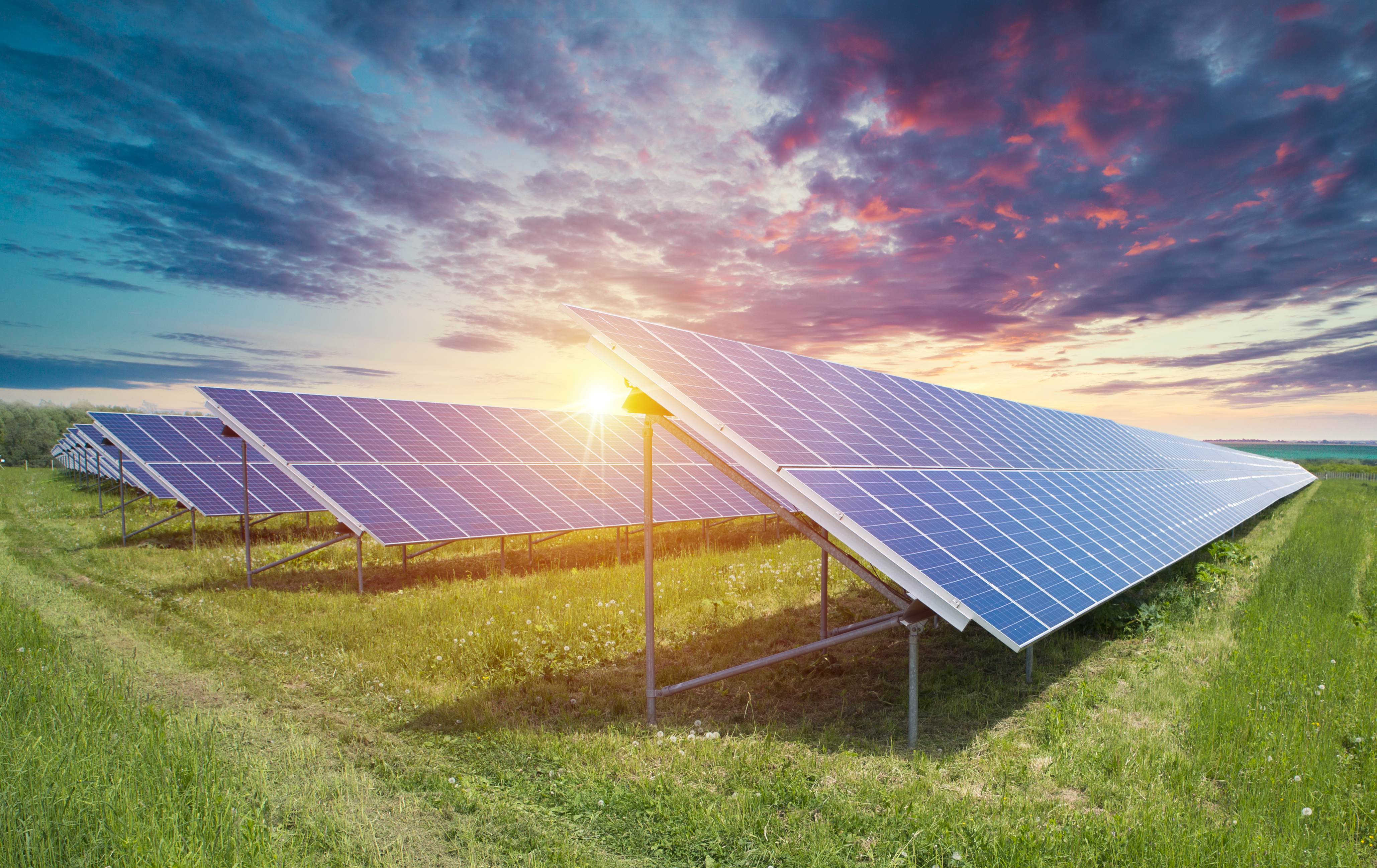
When you’re traveling in an RV, you might want to have a little extra backup power. In that case, RV solar panels can be a great add-on to your vehicle. Home models of solar panels can be large and heavy though, so what should you expect from RV solar panel?
RV solar panels weigh an average of 17 lbs. with a range of 2-35 lbs. They come in a range of sizes and layouts and can be easily installed on the roofs of most RV models. Panels are usually installed at a flat angle and are lighter than home models.
Traveling in an RV is a great way to explore the country and connect with nature. However, installing solar panels in an RV comes with its own pros and cons that every prospective buyer should consider. To learn more about solar panels on RVs, ways to maximize efficiency, and some of the best models on the market, read more below.
Best RV Solar Panels

Renogy 200 Watt 12 Volt Monocrystalline Solar Starter Kit
Weight: 36.6 lbs.
This solar panel is great for off-grid traveling and is a popular choice for RVs, cabins, and boats. It’s a bit heavier than the average RV solar panel, but the easy installation and efficient energy production makes this a great option.
When the panel receives full sunlight exposure, it can charge a 50Ah battery in less than 2 hours. This panel has received overwhelmingly positive reviews and is a very popular choice for travellers and adventurers.
For more information on this model, including prices, size options and delivery, visit this link.
ACOPOWER UV11007GD 100W Foldable Solar Panel Kit
Weight: 25.5 lbs.
This solar panel can be easily folded for greater storage or portability. It comes with stand setups already attached and has a fairly simple setup process. Again, it’s slightly heavier than some solar panel options, but it’s effective and well-liked by customers.
The Acopower kit is designed to be very user friendly and convenient, so it comes with a variety of features such as corner protector and a carrying bag. These accessories make it easy to transport and install, and will keep the solar panel in good condition for years to come!
For more information on this model, including prices, size options and delivery, visit this link.
ALLPOWERS Solar Panel 100W for RV
Weight: 4.84 lbs.
This solar panel is extremely lightweight and can be easily attached to the roof or an RV, boat, or any other irregular surface. Its materials and design make it somewhat flexible, so it’s more likely to bend than break under pressure.
One of the benefits of this solar panel is it’s adaptability. The ALLPOWERS solar panel can be mounted using drilled holes, velcro, or a variety of adhesive substances. It doesn’t need to be mounted to a metal frame in order to operate!
The low price and wide range of uses have made this solar panel a popular choice for the RV and outdoor adventuring community.
For more information on this model, including prices, size options and delivery, visit this link.
Pros And Cons Of RV Solar Panels
Solar panels are great invention s that are revolutionising the concept of clean energy. They’re light, portable, hardy, and adaptable to a variety of environments and setups. They still have some drawbacks and complications that buyers should take into consideration though!
Below we’ll explore some of the pros and cons of installing solar panels in an RV. First up, let’s look at the benefits!

Lightweight
Solar panels are fairly light and won’t take up space in the cabin of your RV. They are lighter and easier to maintain than gas-powered generators and will provide energy without the bulk.
Extra Power
The primary benefit of solar panels is the electricity they generate! Your RV won’t have to rely on campsite hookups quite as much and off-grid campers will enjoy the independence this can bring.
Clean Energy
Solar panels are also a form of clean, renewable energy. Many people who like to travel, camp, and explore the outdoors care about preserving nature. Using solar panels is a good way to live comfortably, while also reducing your carbon footprint.
Unfortunately, as great as solar panels are, they aren’t right for every RV. Sometimes they aren’t practical for travelers and they won’t generate enough power to justify the cost.
Shade vs. Full Sun Parking
Solar panels require access to the sun in order to be as effective as possible. Although they can usually store power while the owner is driving, sometimes it’s necessary to park in full-sun areas. A lot of campsites and RV stops will offer shaded parking spaces, which will limit the amount of energy that can be produced.
It also might be an inconvenience for passengers who want to stretch out and relax in the shade. Parking in full sun can heat up your RV and make you use more power on the air conditioner.
Variable Power Output
Another potential drawback of solar panels is their variable effectiveness. They rely on the sun for power, but no one can guarantee what the weather will be like. If you rely heavily on solar panels but are travelling during cloudy days, you may have to alter your plans.
Expensive Initial Cost
Solar panels can also be a bit expensive initially. They have the potential to pay for themselves over time, but if you don’t use your RV frequently, this point may never come. The upfront cost might not be worth the price of electricity hookups at a campsite.
Potentially Tricky Installation
Not every solar panel is made equal, and some models have unclear instructions. A certain knowledge and skillset is required to install some models, and this could be frustrating to deal with. There’s also the potential for an incorrect setup, which won’t work properly and will cost time and money to fix.
This article gives some great arguments about why solar panels might not be the best choice for every RV.
Don’t be discouraged by the potential drawbacks though! Only you will know if solar panels are a good investment for your RV, so look at all the arguments and data and decide for yourself.